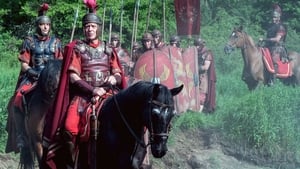
After more than a century of steady Roman decline, one man restores order to the disintegrating empire, setting it on a new course with Christianity at its heart. Host Bettany Hughes examines the life of Constantine the Great--the last emperor to rule over a united empire--and the day he was baptized in May 337 A.D. Explore ancient Constantinople, the city he founded that would shape the dynamics of the known world, and examine recently discovered traces of Constantine's imperial palace.

Out of the carnage of Emperor Nero's death and the civil war that followed, a new imperial dynasty was born, one that looked to win over the hearts of the people by building the largest arena the world had ever seen: Rome's Colosseum. Examine the day in 80 A.D. when the Flavian Amphitheatre opened with a 100-day exhibition of animal and human slaughter. Visit the site, explore ancient artifacts, and see how the Colosseum remains a testament to Rome's reach and ambition and its thirst for blood and glory.

It's 54 A.D. and Nero just succeeded his stepfather Claudius to become the fifth emperor of Rome. What followed was 14 years of cruel behavior that would unite the empire against Nero and, on June 9, 68 A.D., bring a violent end to his rule. Host Bettany Hughes travels the Roman world and examines ancient artifacts to reveal new insights into the most notorious reign in the empire's history. Witness key events in Nero's life that ultimately plunged Rome into a dangerous new phase of its history, an era of civil wars and military coups.

It's 60 A.D. Seventeen years after the invasion of Britannia, Roman forces march into the settlement of the Iceni tribe, flog its queen, and abused her daughters. The attack sparked a retaliatory revolt that came perilously close to ending the Roman occupation of Britain. Host Bettany Hughes retraces the events that led to Boudica's war of annihilation, an onslaught of fire and fury that burnt cities to the ground, left thousands of Romans and native Britons dead, and earned the queen a place in history.

Upon Julius Caesar's death, his 18-year-old great nephew stepped into the delicate balance of power and became Rome's first emperor and a ruthless political operator. The 44-year reign of Octavian, also known as Augustus, was vast and far-reaching, but it may never have happened if it weren't for one critical moment in 32 B.C. Host Bettany Hughes examines the day Octavian ordered the theft of the private will of his archrival Mark Antony and read its contents to Rome's Senate, a massive gamble that would have world-altering ramifications.

Rome had defeated her great rival Carthage and overcame a slave revolt led by Spartacus, but these victories came at a price. Army generals who could deliver foreign conquests accumulated enormous amounts of power. Julius Caesar, seeking glory, would challenge the very existence of the republic. Join historian Bettany Hughes in an exploration of the momentous day in 49 B.C. when Caesar crossed the Rubicon River, violated Roman law, and heralded the transformation of the Roman Republic into an empire ruled by a single man.